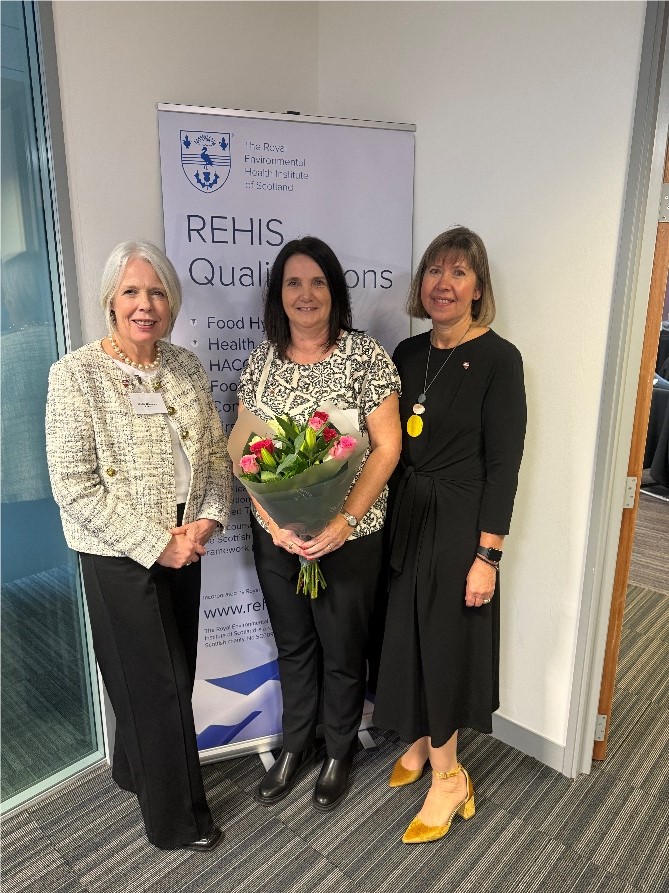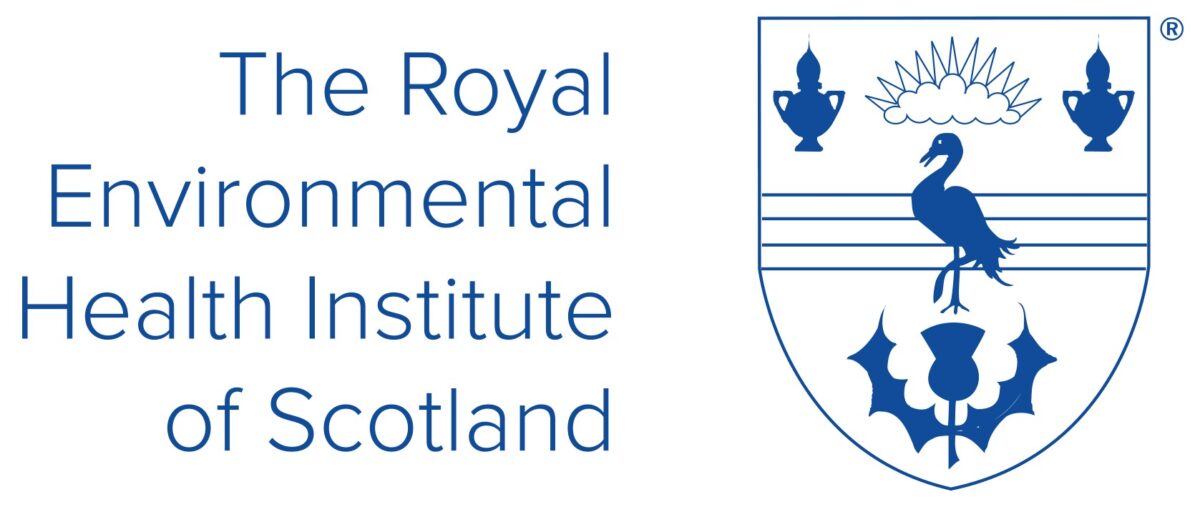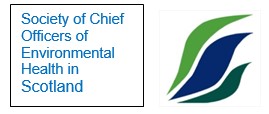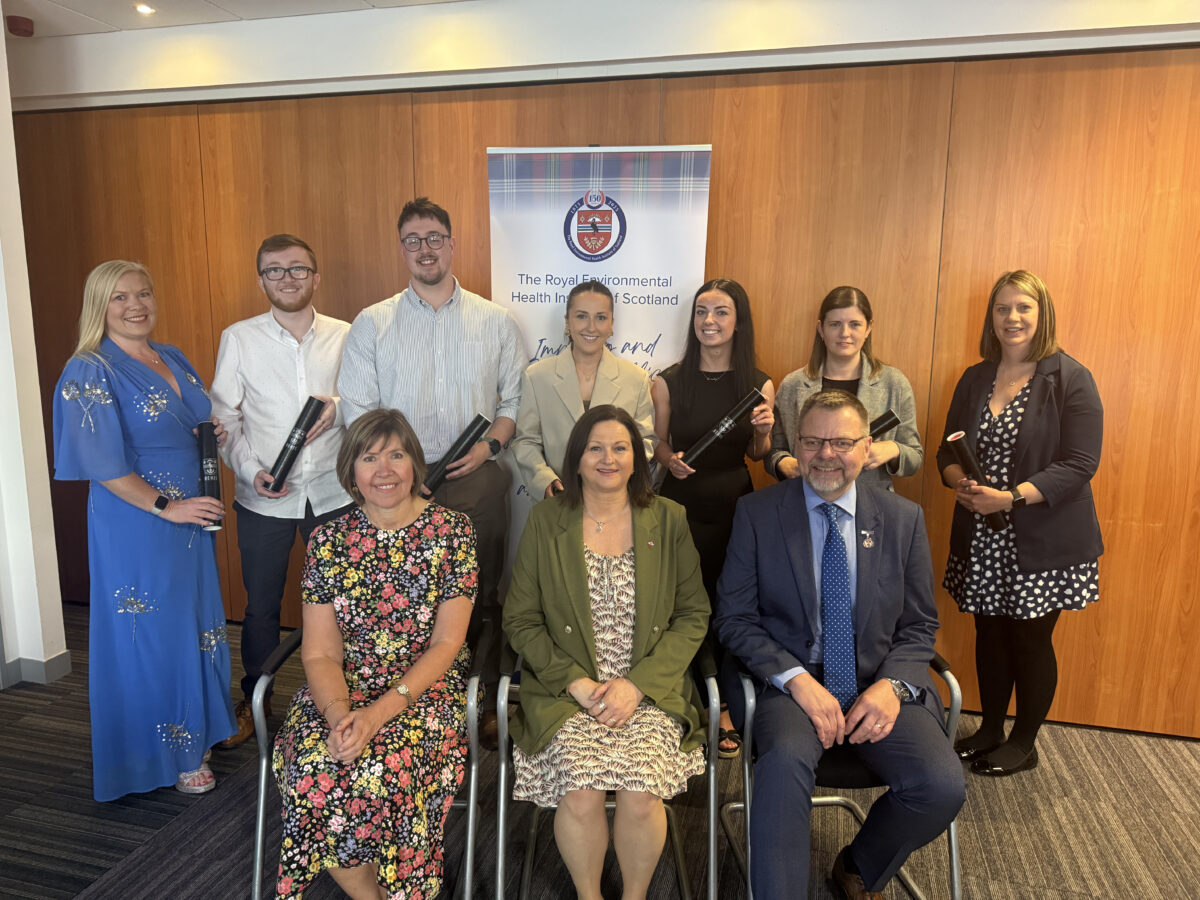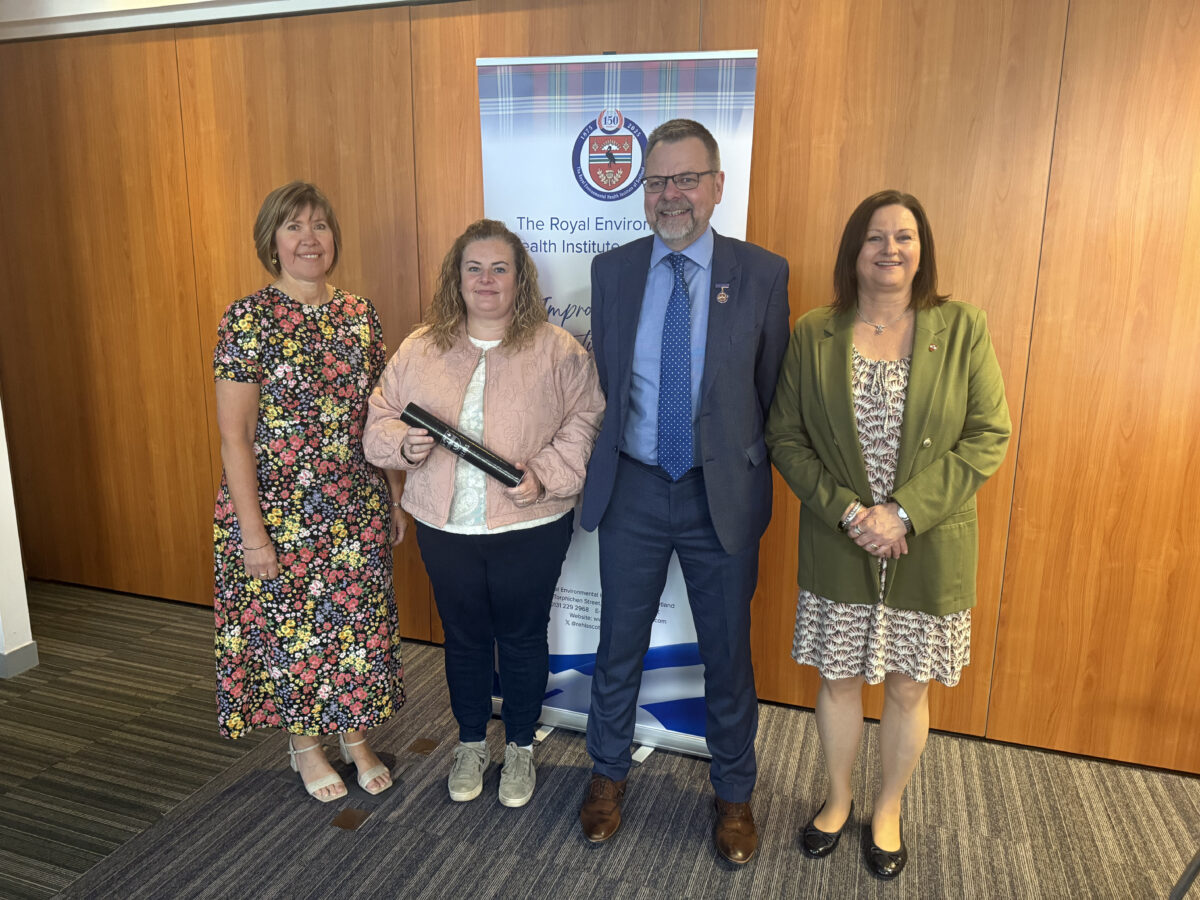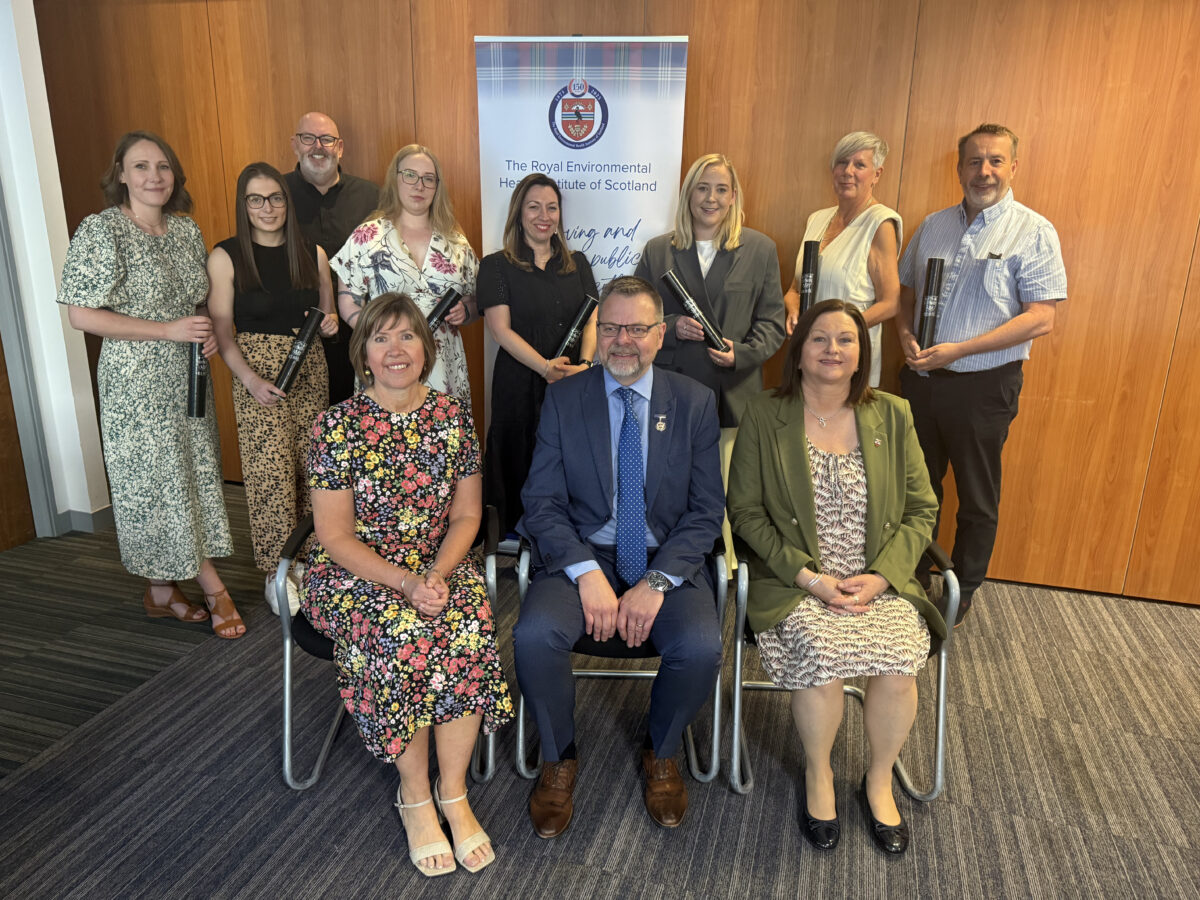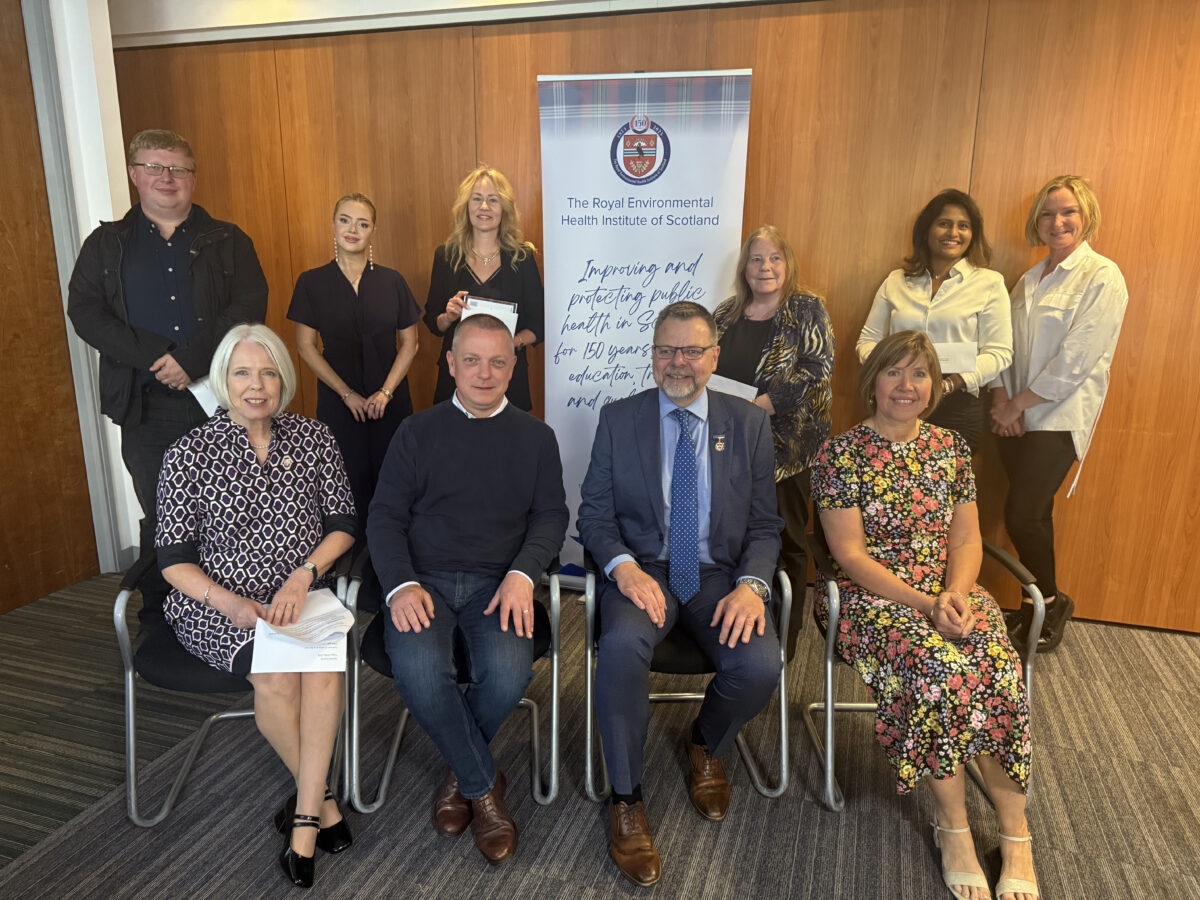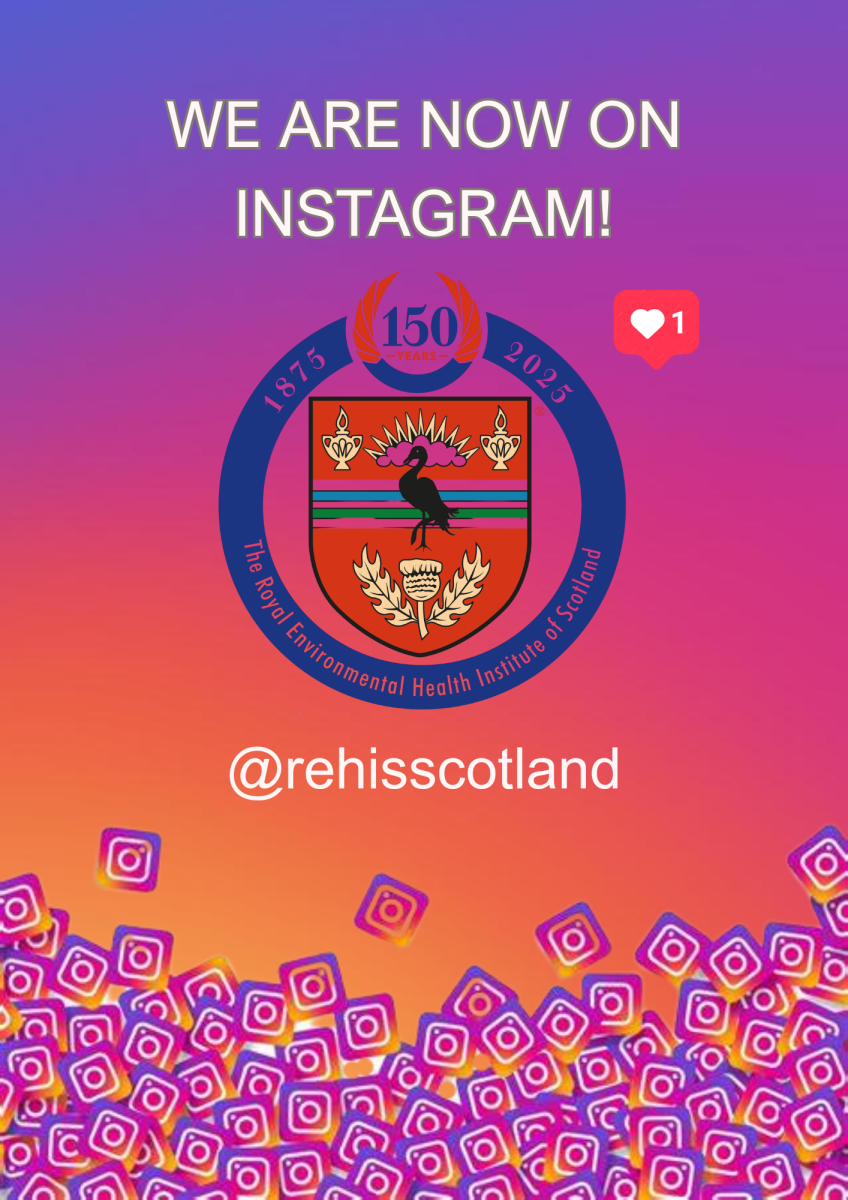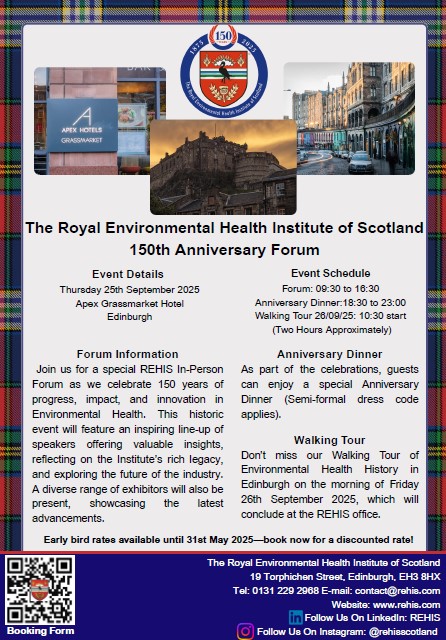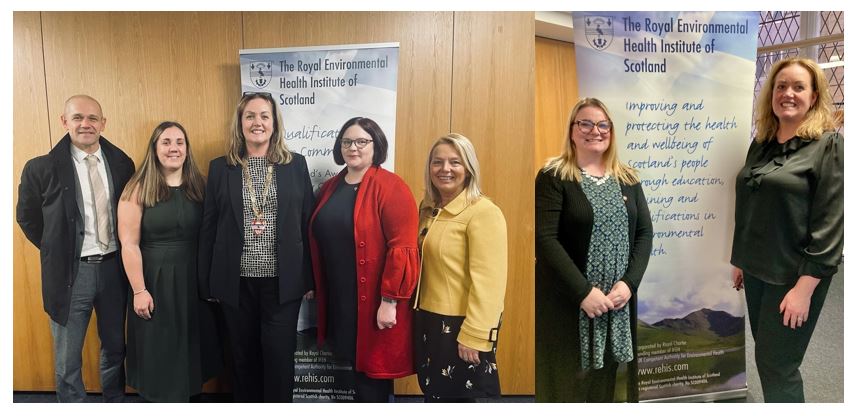Celebrating 150 Years
REHIS is celebrating its 150-year anniversary with a series of events and projects – and a very special tartan reflecting its long history.
The Royal Environmental Health Institute of Scotland has been at the forefront of efforts to improve the health of Scotland’s people since 1875, through education, training and qualifications.
Now REHIS is planning a year of celebrations, kicking off with the creation of a colourful tartan that cleverly uses the Institute’s history as inspiration. Created by Tartan Caledonia, the design incorporates the colours of the official REHIS crest and boasts thread counts that mark the year of its inception. To see the new tartan and understand its history, refer to REHIS 150 Tartan – REHIS
The Institute was established after the merger of the Sanitary Association of Scotland (founded on 20 January 1875) and the Scottish Institute of Environmental Health set up in 1973. The two organisations merged in 1983 to form REHIS. On 8 March 2001, the Queen signed the seal for the Institute to be incorporated by Royal Charter. The first published papers of the Sanitary Association in 1890 describe the appointment of an Examination Board to hold “periodical examinations in sanitary science, for the purpose of granting certificates of competency for the office of sanitary inspector”.
The papers went on to state “ if the public, and more especially the health committees connected with local authorities, can be induced to study the syllabus of subjects we have framed, every one of which subjects has a special bearing upon the health of the community as well as each individual, and a full knowledge of which is necessary to the attaining of our Certificate of Competency, they will see the necessity of having the men, into whose hands they have placed such heavy responsibilities, being thoroughly trained for the duties, and when they have appointed them, help them in their work, and encourage them in every possible way, in the faithful and efficient discharge of their obligations”.
The lofty ideals of the Association are just as relevant, with the role of the Environmental Health Profession and REHIS members more important than ever in today’s world. Along with the REHIS Diploma in Environmental Health, the Institute awards qualifications in Food Hygiene, Food and Health, HACCP, Control of Infection, Occupational Health and Safety and First Aid. Courses leading to REHIS qualifications are available at Approved Training Centres throughout Scotland. Many of the qualifications are recognised by industry, not just in Scotland but nationally and internationally.
The Institute is also committed to Update Events throughout the year, keeping our members appraised of the latest thinking on food safety, health and safety, pollution and public health.
A working group of members are involved in a series of projects to mark the 150-year anniversary. These include: a new 150 logo; a video montage of members’ reflections on how REHIS has influenced and shaped their working lives; and a timeline of key events in the life of the Institute. The timeline will begin as far back as 1842, when social reformer Sir Edwin Chadwick produced a report on the Sanitary Conditions of the Labouring Population of Great Britain. It will incorporate important Acts of Parliament, such as the Public Health (Scotland) Act 1897 and the Public Health etc. (Scotland) Act 2008, through to more recent events such as the crucial role played by EHOs and our members during the recent pandemic.
The Institute will host a 150-anniversary Forum with a dinner in September, when the timeline will be launched. The forum theme will be “Reflecting on the Past, Looking to the Future”. A number of locations are being considered (subject to cost and availability) and we are keen to combine this with an “Open Door” at the REHIS offices in Torphichen Street, where a wealth of photos, documents and newspaper articles will be on display.
The year will end with a special anniversary edition of the REHIS Journal, featuring reflections from Past Presidents and key events in the Institute’s history.
The Institute is immensely proud of the work it has undertaken in the past 150 years; how it has evolved and how it has addressed the many challenges facing the profession. Looking to the future, it will continue to improve and protect public health in Scotland through its education programmes.
We encourage all REHIS members to promote and participate in the year ahead to mark this huge milestone and the work of the Institute.
For more information, please contact the Chief Executive contact@
